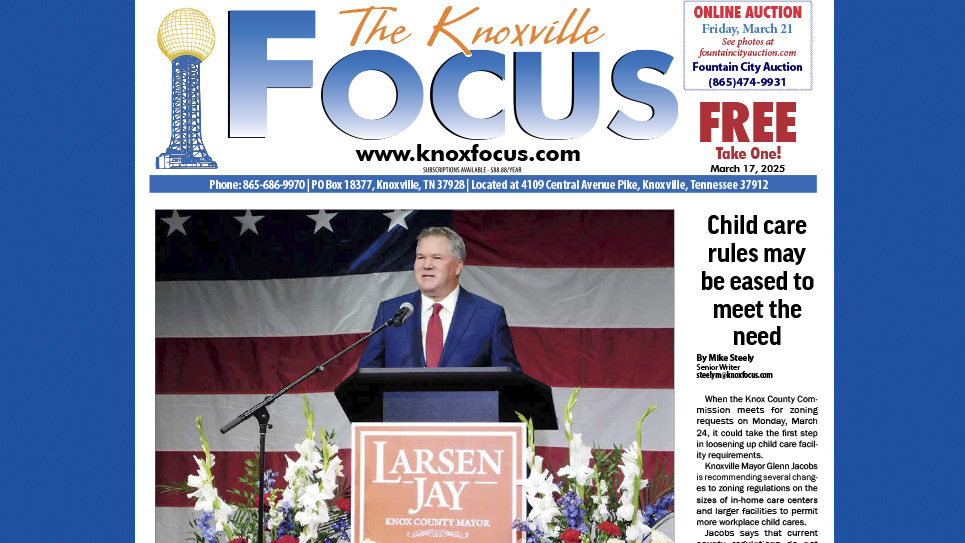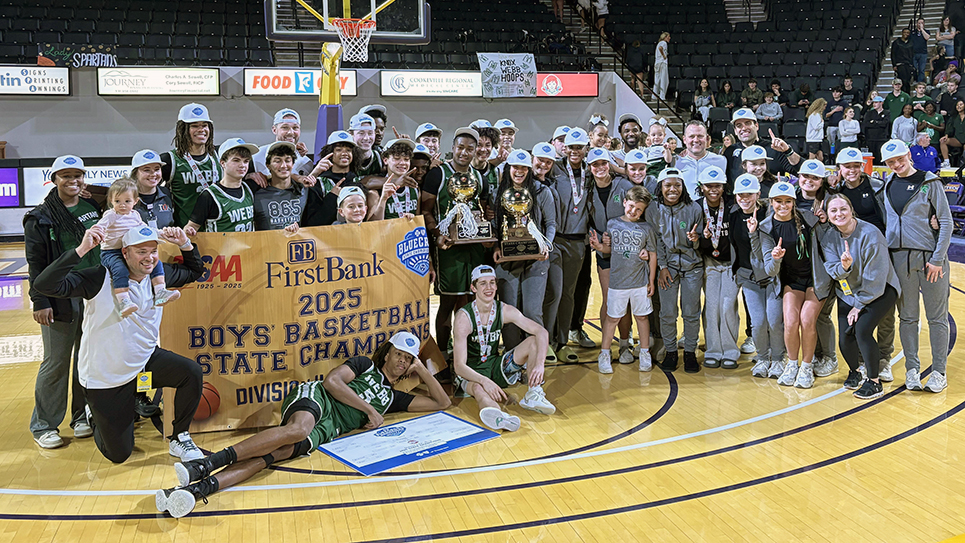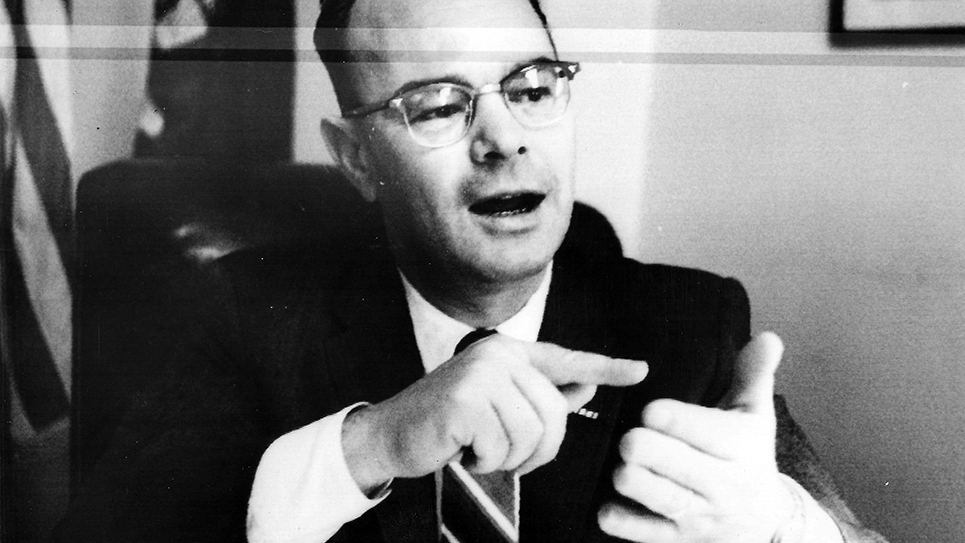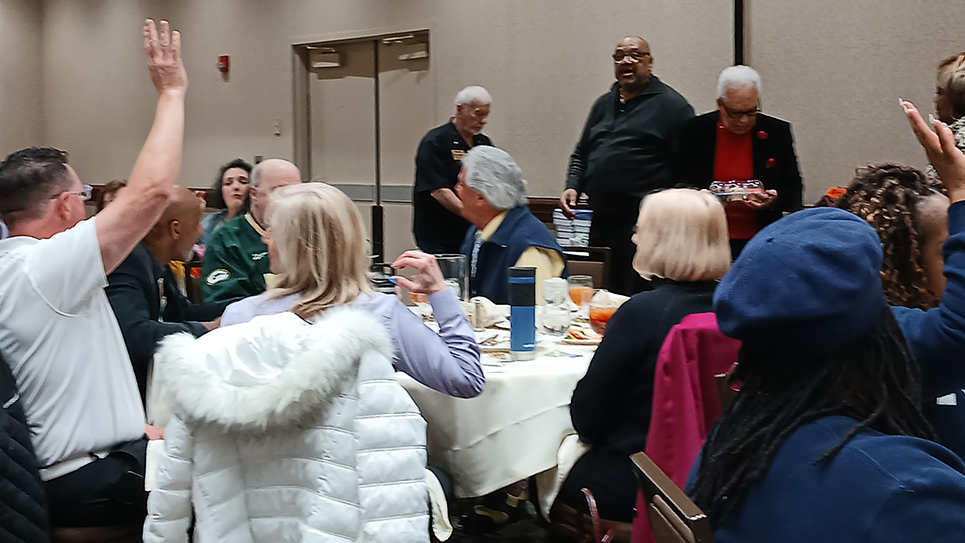By Ray Hill
For twenty years, Tennessee’s Second Congressional District had been served in the United States House of Representatives by J. Will Taylor. “Hillbilly Bill” Taylor was also the last congressman elected from this district who either did not live or later move to Knoxville. Taylor had become an institution inside the district and while something of a polarizing figure, “Hillbilly Bill” counted his personal friends by the thousands. Taylor’s political dominance was frequently challenged inside the Republican Party as well as the Republican primary. Taylor beat every opponent and had only one narrow scrape with a political opponent and that was in the 1936 general election when the congressman had faced former Knoxville mayor John T. O’Connor. More than O’Connor’s admittedly formidable personal appeal, Taylor was, like many Republicans, almost buried beneath an avalanche of votes by a candidate with even far greater appeal: Franklin Delano Roosevelt. The Republican presidential nominee, Alf Landon, only carried Maine and Vermont that year and Democrats increased their already impressive numbers in both Houses of Congress. Following the 1936 election, there were only sixteen Republicans left in the ninety-six-member United States Senate.
John Jennings, Jr., a successful attorney living and practicing in Knoxville, had won a hotly contested convention to become the nominee of the Republican Party in Tennessee’s Second Congressional District. The special election was to be held on December 30, 1939 and the campaign lasted a mere sixteen days from start to finish.
Jennings toured Roane County, home to his Democratic opponent, State Senator Hammond Fowler, a young lawyer and orator of some ability. Fowler was a serious candidate and had declared the issue of the special election was electing a congressman who would support and help develop the Tennessee Valley Authority. Judge Jennings did not disagree and reminded anyone who would listen of his own record on the issue of public power. In fact, while campaigning in Roane County, Jennings stressed his support for the dam-building program of the Tennessee Valley Authority and expressly declared flood control was the responsibility of the Federal government and he intended to see to it the waters did not overflow and wash away his people. That was a subject that resonated with many people in Roane County, most of whom could remember all too well a few years earlier when “a score of people” had lost their lives when floodwaters came roaring into the area and inundated Roane County. The flood took lives and when the waters receded, it left several millions of dollars in property damage to homes and businesses.
Elizabeth Taylor and her younger sister, Katheryne, came to Knoxville to “finish our Christmas shopping” and visited the campaign headquarters of Judge Jennings at the Hotel Farragut. The daughters of the late J. Will Taylor greeted those coming by to call. Elizabeth had been urged to run for her father’s old seat and eventually, she said her mother, who was ill, needed her at home.
The Knoxville Journal worried about Republican “overconfidence.” Editor Guy Smith published an editorial saying what needed to be emphasized “particularly in Knox County” was “that Republicans must not allow themselves to be defeated by overconfidence.” “This might easily happen here in Knox County where, all are agreed, the fight between John J. Jennings and his opponent will center.” The newspaper editor pointed to the recent election inside the City of Knoxville. “During the recent City campaign the McKellar machine, under the generalship of ‘General’ Kennerly, functioned most efficiently.” Smith referred to the organization of Tennessee’s senior United States senators, Kenneth D. McKellar and Wesley T. Kennerly, who had been the District Attorney General for Knox County, hence the honorific of “General.”
Guy Smith warned his fellow Republicans, “This organization, with only a few parts missing (these being Republicans who joined forces with the machine), is ready for the coming election if the powers that be in the McKellar faction want it to function, and our guess is they will.” “No great political acumen is required to conclude that if the machine goes to work in earnest,” Guy Smith stated, “the Republicans must properly organize to effectively compete with it.” It was not enough merely to hope that a “spontaneous outpouring” of votes for Judge Jennings would appear at the polls, Smith wrote, in the face of the threat of the “machine.” It was certainly true Democrats, including Senator McKellar, were interested in winning the special election. McKellar was raising money for Hammond Fowler.
While John Jennings spent a day revving up Republicans in Knox County, Hammond Fowler was campaigning in Etowah. Fowler was critical of statements made by the GOP candidate on Social Security. “I would rather not go to Congress than to get there by terrifying and deceiving people about their Social Security benefits,” Fowler said. Fowler pointed to a speech made by Judge Jennings in Huntsville where the GOP nominee was chastening the New Deal for spending money collected for Social Security benefits on other things. Fowler cried it was “a despicable thing” for Jennings to attempt to get to Congress by scaring old folks about their benefits. Hammond Fowler also accused Jennings of being against the Tennessee Valley Authority, which he said the Judge had “tried to choke it to death at the polls” as the campaign manager of the Anti-Bond Association in Knoxville in 1933. Fowler noted Jennings had been the attorney of record in the matter of the Public Service Corporation v. City of Knoxville which the Democratic candidate for Congress insisted the Judge had asked the courts to rule the entire TVA Act as “unconstitutional and void.”
Speaking in Madisonville, the birthplace of a newly elected congressman from Chattanooga named Estes Kefauver, Hammond Fowler spoke to an audience of 121 people who gathered to hear the Democratic candidate in a sleet storm. Fowler continued to hammer Jennings’ record on the Tennessee Valley Authority. Jennings was, Fowler told his listeners, rather like another recent GOP candidate “who went around the country complaining about policies of the federal government.” “That candidate carried only two of the forty-eight states, and I predict that my opponent will not carry more than two of the Second district’s eleven counties,” Hammond Fowler said. Ben Sands, Clerk and Master for the judicial district which included Madisonville, read a telegram from Congressman Kefauver expressing his regret he could not be present at the event but urged the voters of Monroe County to support Fowler’s candidacy. As he concluded his speech, Fowler wished every member of his audience a Merry Christmas and said he hoped the voters of Tennessee’s Second Congressional District would “wish me a happy new year with a sizable majority of votes in the Dec. 30 election.”
John Jennings followed Hammond Fowler into Etowah where the GOP candidate was heralded as “the most distinguished and worthy Republican south of the Ohio River” at a rally at the Junior High School auditorium. That remark was made by Tom Taylor, who had long been a participant in Republican politics and prominent in McMinn County. Jennings hit Fowler for continuing to accept a salary of $4,500 as an attorney for the WPA.
Two of the days during the brief period before the general election included Christmas Eve and Christmas Day. There were the usual reports of party bickering which Jack Dance, one of the aspirants for the GOP congressional nomination, quickly dismissed. “We had a fight among ourselves,” Dance explained, “but we’re all fighting one battle now and that’s to elect a Republican Congressman. We just have a little family, friendly fight.” Andy Hartman, who had backed attorney Ray Jenkins for the Republican congressional nomination mused, “If we fight our common enemy as hard as we can fight among ourselves, God pity the Democrats.”
Both candidates took time off to celebrate Christmas with their respective families but were back on the campaign trail the following day. Hammond Fowler corrected the accusation he was still collecting a salary from the state and added, “At any rate, it comes with very poor grace from this ex-chancellor who in 1922 continued to accept a $5,000 annual salary from the State of Tennessee while running against the late Congressman J. Will Taylor, to criticize any man for accepting any public salary while running for office.” Fowler noted Judge Jennings had “held firmly on to his position as chancellor, despite the fact that a judicial officer is supposed to be impartial and non-political…” Fowler said the robes of a Chancellor were “never intended to be dragged in the mire of partisan politics.”
John Jennings took his campaign to Loudon County where he touted his support for a bill that would replace revenues lost to the state and local governments through the purchase of the Tennessee Electric Power Company’s properties by TVA. Senator McKellar had been waging a fight to restore the money to Tennessee and Tennesseans. Tom Stewart, Tennessee’s junior U. S. senator, came to Knoxville to campaign for Hammond Fowler, the Knoxville Journal cried “state Democratic machine representatives of the McKellar – Cooper faction” had filled Market Hall. The “machine” rank and file cheered while Senator Stewart and Fowler spoke. Hammond Fowler insisted John Jennings “is now and always has been an enemy of the Tennessee Valley Authority.” Stewart endorsed Fowler and said the Democratic nominee was “the type of self-made man that Tennesseans respect and admire.”
The day before the election, Judge Jennings was in Maryville for a rally where he again reiterated his strong support for TVA. A crowd numbering more than 500 heard the GOP nominee for Congress extol his support for the agency. As is typical in such cases, both political camps forecast victory at the polls. Voters trooped to their respective voting precincts on Saturday, December 30, 1930 in a day before there was early voting or satellite precincts. Both candidates had closed their campaigns the night before. John Jennings had spoken for thirty minutes over WNOX while Hammond Fowler spoke at the Harriman Theatre, where each person attending got to see a free movie.
As the election results were tabulated, it became increasingly clear John Jennings had carried the more rural counties of the Second Congressional District handily. The polls in the rural counties closed at 4:00 p.m. Jennings had carried nine of the eleven counties comprising the Second District. Fowler only narrowly edged out Jennings in his home county of Roane. Hammond Fowler won Monroe County by a mere 26 votes. Jennings, to the surprise of some political observers, carried both the City of Knoxville as well as Knox County. Jennings won just over 60% of the vote.
Judge Jennings hurried to the Capitol and appeared in the office of Speaker William B. Bankhead just before noon on January 3, 1940. Speaker Bankhead explained Jennings could not yet be sworn in because the official vote count had not been received from Union County. Jennings was allowed on the floor of the House where President Roosevelt was to speak to Congress.
John Jennings remained in Congress for a decade. Jennings never did quite entrench himself in the Second Congressional District and was frequently seriously challenged in either the primary or general elections. Guy Smith, editor of the Knoxville Journal, which was the mouthpiece for Republicanism in East Tennessee, never did quite accept Jennings. In 1950, Smith backed the candidacy of Howard H. Baker inside the GOP primary. Jennings, seventy years old at the time, lost badly and returned home to Knoxville where he resumed his law practice for the remaining five years of his life. John Jennings, Jr. became the only incumbent congressman from Tennessee’s Second District to lose an election in the last 100 years. Death was a much greater threat to the incumbent congressmen from the Second District; six men and one woman have been elected to serve the Second District over the last 100 years and three of those – – – J. Will Taylor, Howard Baker, and John J. Duncan died in office.






